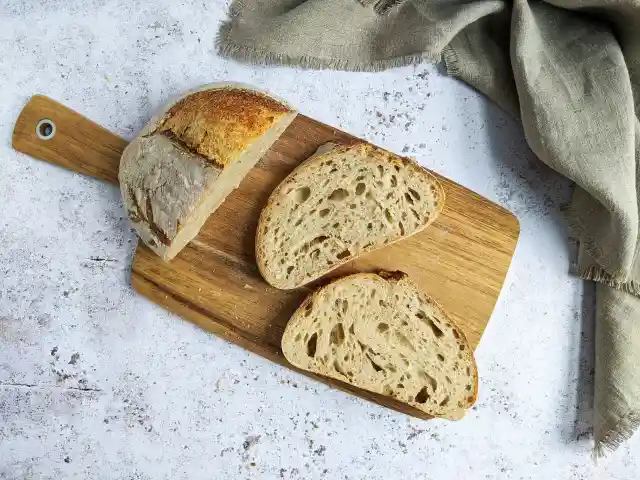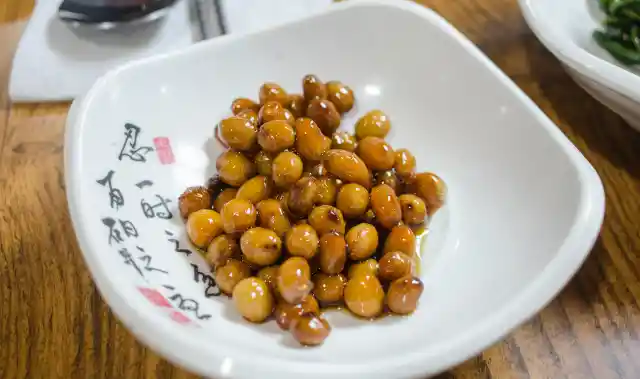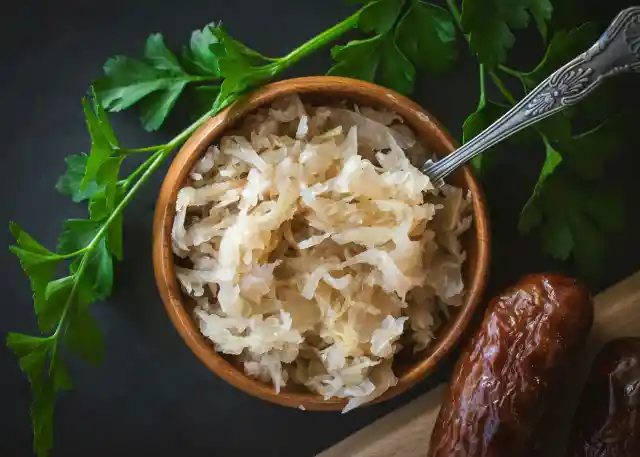Among the many critical roles that probiotic bacteria do, they are responsible for promoting a healthy immune system, metabolism, and digestion. Probiotics are live microbes, such as yeasts and bacteria, that have the potential to improve health. Dietary supplements often contain them, although you could also find them in some food.
Your food choices also have a significant impact on the microbiota that lives in your gut, and you can simply support this by increasing the amount of probiotic foods that you consume on a regular basis.
.
Yogurt


Yogurt is one of the most effective sources of probiotics. Fermentation of milk by probiotics, primarily lactic acid bacteria and bifidobacteria, is the primary ingredient in this product. Yoghurt is one of the best sources of probiotics on the world, and it is also one of the most accessible and inexpensive ones. Calcium, protein, and minerals are all naturally present in high concentrations in yoghurt. Choose organic yogurt from the milk of sheep or goats, or yogurt from an animal that was fed grass. This will make sure that your yogurt has the most probiotics possible.
.
Kefir


This unusual fermented dairy product is a cross between yogurt and kefir, a type of fermented grain sweetener. It has been enjoyed for more than three thousand years; the name, meaning "feeling good," has its roots in Russia and Turkey. It comprises 10–34 different strains of probiotics and has a slightly sour and acidic taste. It tastes like yogurt but has more probiotics and less lactose than regular yogurt since it is fermented with yeast and other bacteria instead of just milk. This makes it a good option for people who can't digest lactose.
.
Kimchi


These nutrient-dense Korean veggies, which typically comprise napa cabbage or Korean radish, are lactofermented with bacteria known as Lactobacillus. This is what gives kimchi its sour flavor and the probiotic content that it contains. It is frequently served with gochugaru, which is Korean red chile. Gochugaru has the ability to impart flavor and spice to dishes that are otherwise bland, such as rice and noodles.
.
Aged Cheese


Just because most cheeses go through a fermentation process doesn't mean they all have probiotics. For this reason, you should keep an eye out for the phrases "active cultures" or "live cultures" on menu items. Cottage cheese, semi-hard cheeses like cheddar, mozzarella, or gouda, and some aged cheeses may include more probiotics than the more mature varieties. Cheesemakers are constantly looking for new ways to preserve the beneficial bacteria that live in cheese as it ages.
.
Sourdough


Sourdough is a nutrient-dense, easily digestible bread that typically only requires four ingredients: wheat, water, salt, and a starting culture. Because of the starter and the lengthy fermentation process, sourdough is able to retain its flavor, texture, and health benefits. While baking kills off most of the starter's helpful bacteria, it does increase bioavailability of chemicals called polyphenols. Sourdough, in contrast to many mass-produced breads, really helps keep blood sugar levels stable, and these serve as a vital fuel source for the good bacteria in our digestive tract.
.
Tempeh


This Indonesian patty is a natural antibiotic that combats specific bacteria; it is made from fermented soybeans as its foundation. Tempeh ranks high in protein as well. A lot of people say it tastes like mushrooms and has a smokey, nutty flavor. It can be marinated and used in place of meat in a variety of different recipes.
.
Kombucha


Because of the fermentation process and the presence of helpful bacteria and yeast, this fermented tea beverage is often linked to probiotics. It can be either green or black in color. It is believed that the probiotics in kombucha boost immune function by increasing the body's supply of antibodies and immunological cells, which in turn helps the body fight off illnesses and infections.
.
Sour Pickles


Consuming pickles that have been lacto-fermented is an excellent way to consume probiotics. But not every pickle has probiotics. Even though they are branded as pickled, many goods are actually only quick-pickled, which means they are soaked in a vinegary, sweet-salty brine without any live active bacteria. If you want your pickles to have a real fermented flavor, look for the label that says "fermented." If you prefer sour pickles, their sourness comes from the fermentation process itself, not vinegar.
.
Natto


Natto, a fermented soybean dish popular in Japan, contains the potent probiotic Bacillus subtilis, which has several health benefits, including improving digestion of vitamin K2, supporting cardiovascular health, and bolstering your immune system. With its high protein content and potent anti-inflammatory enzyme nattokinase, natto is undoubtedly one of the best probiotic foods. It also helps to prevent blood clotting.
.
Miso


Miso is one of the most food sources of probiotics that may be used in a variety of ways. To make miso, mixture soybeans with koji, a mold grown from rice, is used as a start culture. After a few months of fermentation, you'll have a tasty fermented paste that's jam-packed with umami and ready to add to a wide variety of recipes. Try it in salad dressings, marinades, soups, stews, and baked goods for a hint of sweetness and savory. Not only does miso contain probiotics, but it is also a whole protein that includes all of the necessary amino acids for good health, a source of vitamin K, manganese, zinc, and calcium.
.
Sauerkraut


Thought to have been a staple of the American cuisine from the very beginning, sauerkraut has its roots in the Roman Empire. It is also rich in probiotics, making it a top food source for this nutrient. The fermenting process of sauerkraut is a natural process that takes place over time and involves the use of salted cabbage. The salt is an essential component because it draws out the water that is contained within the cabbage, so producing a natural brine. Dietitians and chefs alike love sauerkraut because it is one of the simplest fermented foods, but it packs a big nutritional punch. Along with probiotics, sauerkraut has many other health advantages and can be the perfect salty-crunchy condiment.